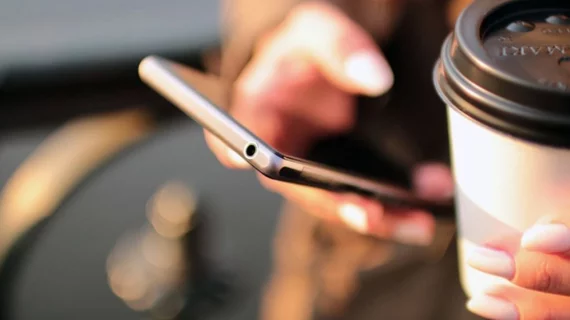Excessive smartphone use linked to 43% greater risk of obesity
Young people who used their smartphone five or more hours per day were 43% more likely to be obese than their counterparts with less reported screen time in a recent study presented at the ACC Latin American Conference 2019 in Cartagena, Colombia.
Mirary Mantilla-Morron, a cardiac pulmonary and vascular rehabilitation specialist at the Health Sciences Faculty at the Simon Bolivar University in Barranquilla, Colombia, and her team analyzed 1,060 local students during a six-month period in 2018 in an effort to determine how smartphone usage affects overall CV risk. Seven hundred women and 360 men enrolled in the study, the majority of whom were between 19 and 20 years old at baseline.
Mantilla-Morron and her colleagues found participants’ risk of obesity rose by as much as 43% if they used their smartphones five or more hours a day, according to a release from the ACC. Those students were also twice as likely to consume more sugary drinks, fast food, sweets and snacks and reported decreased physical activity.
“It is important that the general population know and be aware that, although mobile technology is undoubtedly attractive for its multiple purposes, portability, comfort, access to countless services, information and entertainment sources, it should also be used to improve habits and healthy behaviors,” Mantilla-Morron said in the release. “Spending too much time in front of the smartphone facilitates sedentary behaviors [and] reduces the time of physical activity, which increases the risk of premature death, diabetes, heart disease, different types of cancer, osteoarticular discomfort and musculoskeletal problems.”
Men who participated in the study were 36.1% likely to be overweight and 42.6% likely to be obese, Mantilla-Morron et al. reported, while enrolled women were 63.9% likely to be overweight and 57.4% likely to be obese. Twenty-six percent of subjects who were overweight and 4.6% of those who were obese spent more than five hours using their device each day.
“The results of this study allow us to highlight one of the main causes of physical obesity, a risk factor for cardiovascular disease,” Mantilla-Morron said. “We have also determined that the amount of time in which a person is exposed to the use of technologies—specifically prolonged cellphone use—is associated with the development of obesity.”

